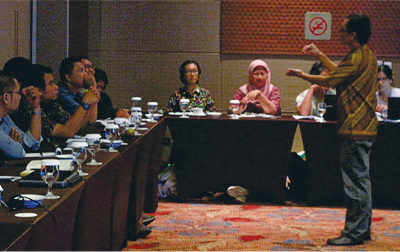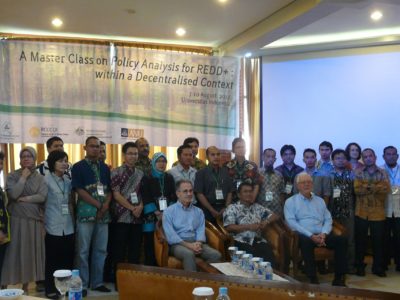General Lecture by Prof. Jeff Sachs
 Prof. Jeffrey D. Sachs is a world-renowned professor of economics, leader in sustainable development, senior UN advisor, bestselling author, and syndicated columnist. He is one of the world’s most perceptive and original analysts of global development. He has worked in many areas including macroeconomics, reform, poverty, and sustainable development. He has published widely, including The New York Times Best Seller, 'The End of Poverty: Economic Possibilities for Our Time' and 'Common Wealth: Economic for a Crowded Planet.'
Prof. Jeffrey D. Sachs is a world-renowned professor of economics, leader in sustainable development, senior UN advisor, bestselling author, and syndicated columnist. He is one of the world’s most perceptive and original analysts of global development. He has worked in many areas including macroeconomics, reform, poverty, and sustainable development. He has published widely, including The New York Times Best Seller, 'The End of Poverty: Economic Possibilities for Our Time' and 'Common Wealth: Economic for a Crowded Planet.'
“The Age of Sustainable Development in Indonesia” by Prof. Jeffrey D. Sachs
 Prof. Jeffrey D. Sachs is a world-renowned professor of economics, leader in sustainable development, senior UN advisor, bestselling author, and syndicated columnist. He is one of the world’s most perceptive and original analysts of global development. He has worked in many areas including macroeconomics, reform, poverty, and sustainable development. He has published widely, including The New York Times Best Seller, 'The End of Poverty: Economic Possibilities for Our Time' and 'Common Wealth: Economic for a Crowded Planet.'
Prof. Jeffrey D. Sachs is a world-renowned professor of economics, leader in sustainable development, senior UN advisor, bestselling author, and syndicated columnist. He is one of the world’s most perceptive and original analysts of global development. He has worked in many areas including macroeconomics, reform, poverty, and sustainable development. He has published widely, including The New York Times Best Seller, 'The End of Poverty: Economic Possibilities for Our Time' and 'Common Wealth: Economic for a Crowded Planet.'
Indonesia’s Climate Commitment
The "Indonesia's Climate Commitment and The New Climate Economy" seminar and national discussion held on April 20, 2015 was a roaring success with over 250 participants packing the beautiful Floating Room (Ruang Apung) on the picturesque lakeside of the leafy UI Depok campus. The presence of Sir David King together with Prof. Emil Salim and three other speakers moderated by Dr. Jatna Supriatna, with an active audience participation resulted in a very lively discussion. The discussion started with an address from Rector of the University of Indonesia who spoke about how higher education has a vital role to play in explaining the facts and in providing leadership to address the complex dimensions of climate change and to develop concrete sustainable solutions. Universities can provide the required knowledge and the initiative to drive national activities to move this country forward.
Can Indonesia Develop without Destroying Its Environment?
 A public lecture on sustainable development in Indonesia is being held on April, 9 2015 in the University of Indonesia Center Library. The lecture entitled “Can Indonesia Develop without Destroying Its Environment?” was focused on the challenges facing in the Insular South East Asia region, including the issues for forest landscape, smaller islands and coastal areas.
A public lecture on sustainable development in Indonesia is being held on April, 9 2015 in the University of Indonesia Center Library. The lecture entitled “Can Indonesia Develop without Destroying Its Environment?” was focused on the challenges facing in the Insular South East Asia region, including the issues for forest landscape, smaller islands and coastal areas.
Certificate Training Series on Climate Change
Research Center for Climate Change—University of Indonesia will be conducting the second batch of certificate training series on August and September 2015. These trainings will provide practical skill and conceptual understanding which are needed to help reduce deforestation rate and forest conversion in every aspects. The training, which also conducted by Center for Environment, Economy, and Social (CEES)—Columbia University and funded by USAID, is aimed to facilitate forest management activities in Indonesia. The training series will be carried out by the experts and practicians from each topics.
Ecosystem Services Discussion
 The study from Intergovernmental Panel for Climate Change (IPCC) in 2007 has found that the increasing of glasshouse gases quantity (CO2, CH4, NOx, and CFC) in the atmosphere largely due to human activities has been triggering the climate change on earth. Climate change is also posing great threat to society because it is shifting the balance in ecosystem and the dynamic of its components. Industrialization and fossil fuel combustion had led to the increasing of CO2 and other glasshouse gases quantity into atmosphere, causing global warming and climate instability.
The study from Intergovernmental Panel for Climate Change (IPCC) in 2007 has found that the increasing of glasshouse gases quantity (CO2, CH4, NOx, and CFC) in the atmosphere largely due to human activities has been triggering the climate change on earth. Climate change is also posing great threat to society because it is shifting the balance in ecosystem and the dynamic of its components. Industrialization and fossil fuel combustion had led to the increasing of CO2 and other glasshouse gases quantity into atmosphere, causing global warming and climate instability.
Developing countries had been marked to suffer the biggest effect from the climate pattern change. The changing effects, including temperature rise, precipitation pattern change, sea-level rise, and other climate-related disasters are also increasing the risk in the agriculture, food, and water resource. Globalization on industrial system is also causing ecosystem fragmentation and degradation on big scale, destroying the ecosystem inhabited by various indigenous plant and animal species which could lead to the sixth great extinction.
The vital role of ecosystem and biodiversity—biosphere—on sustaining life, as we all know, has not been well-managed yet. The resilience on climate change depends on its healthy ecosystem and biodiversity richness. The higher biodiversity richness in the ecosystem and ecological knowledge in a community, the stronger its bio-cultural resilience. Resilience comes from the ability to mitigate (reducing the impact) or adaptation (response from change). The factors above are affecting the capacity of a system to endure disturbance and shock. In other words, it is the ability of a system to regulate its essential functions, structure, and identity. Resilience is an absolute quality characteristic from all healthy life system. There are many services which provided by forest that could contribute in reducing system vulnerability against climate change and, as a consequence, increasing its resilience.
SDSN Regional Workshop
 The United Nation – Sustainable Development Solution Network (UN – SDSN), alongside United in Diversity (UID) Foundation, had established a regional workshop entitled Priorities and Pathways for Sustainable Energy and Deep Decarbonization in Indonesia. The workshop took place at Hotel Aryaduta, Jakarta, for two days on 26 – 27 November 2014. The workshop was organized as a by-invitation event and co-hosted by Ministry of Environment and Forestry, directly under Minister Siti Nurbaya. The workshop was also organized by collaboration of University of Indonesia (UI), UID, and Monash University in partnership with Carbon War Room, Australia – Indonesia Centre, and Harold Mitchell Foundation.
The United Nation – Sustainable Development Solution Network (UN – SDSN), alongside United in Diversity (UID) Foundation, had established a regional workshop entitled Priorities and Pathways for Sustainable Energy and Deep Decarbonization in Indonesia. The workshop took place at Hotel Aryaduta, Jakarta, for two days on 26 – 27 November 2014. The workshop was organized as a by-invitation event and co-hosted by Ministry of Environment and Forestry, directly under Minister Siti Nurbaya. The workshop was also organized by collaboration of University of Indonesia (UI), UID, and Monash University in partnership with Carbon War Room, Australia – Indonesia Centre, and Harold Mitchell Foundation.
Seminar and Book Launching
 Research Center for Climate Change – University of Indonesia (RCCC – UI) together with Faculty of Mathematic and Natural Science – University of Indonesia (FMIPA – UI) have been conducting a seminar on the topic of National Parks and Ecosystem Services on September 5, 2014. The seminar was held at Balai Sidang UI and the participants were coming from various institutions such as Akademi Ilmu Pengetahuan Indonesia (AIPI), Ministry of Forestry RI, Ministry of Research and Technology RI, Restorasi Ekosistem Indonesia, Ltd., Conservation International, Kehati, and students from another universities.
Research Center for Climate Change – University of Indonesia (RCCC – UI) together with Faculty of Mathematic and Natural Science – University of Indonesia (FMIPA – UI) have been conducting a seminar on the topic of National Parks and Ecosystem Services on September 5, 2014. The seminar was held at Balai Sidang UI and the participants were coming from various institutions such as Akademi Ilmu Pengetahuan Indonesia (AIPI), Ministry of Forestry RI, Ministry of Research and Technology RI, Restorasi Ekosistem Indonesia, Ltd., Conservation International, Kehati, and students from another universities.


